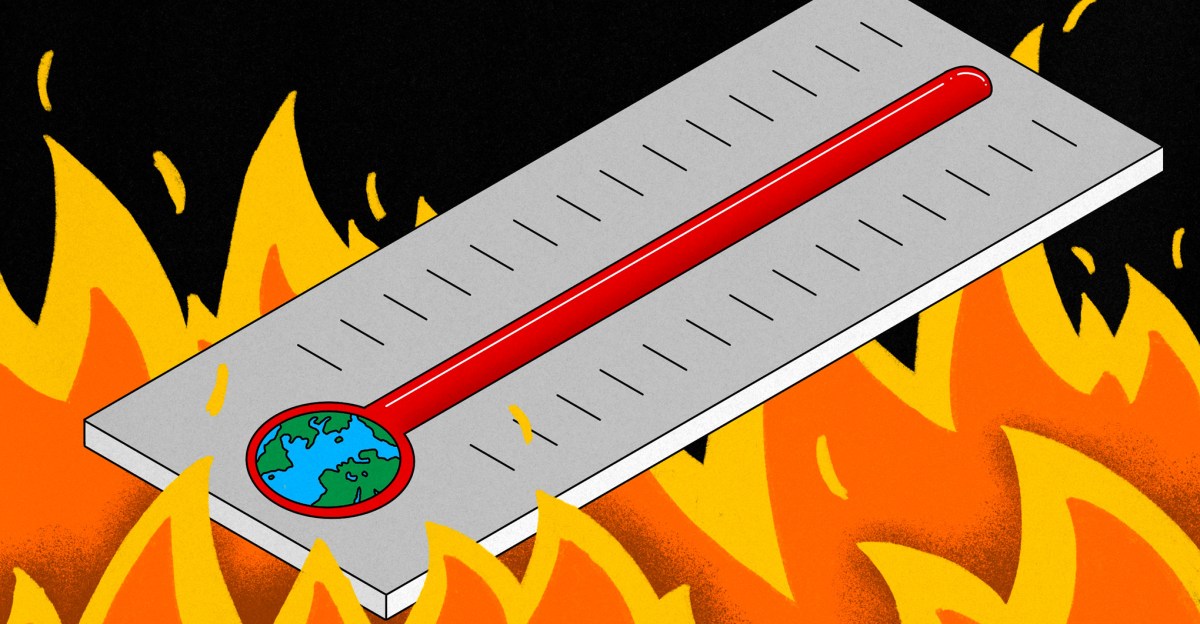The Heat is On: Understanding the Impact of High Temperatures on Aging
In recent years, scientists have increasingly focused on the relationship between climate change and human health, particularly regarding how environmental factors like extreme heat can affect our aging process. New research suggests that prolonged exposure to high temperatures may accelerate aging, presenting significant implications for public health and longevity. With climate change becoming a pressing global issue, understanding these effects is critical for both individuals and health policymakers.
High Temperatures and Biological Aging
The concept of aging is not solely defined by the number of years one has lived; it encompasses a complex interplay of biological, environmental, and lifestyle factors. Aging at the cellular level involves the gradual decline in the function of cells, leading to increased vulnerability to diseases and health complications. Recent studies have indicated that high temperatures can exacerbate this process through various mechanisms.
- Oxidative Stress: Elevated temperatures can increase the production of reactive oxygen species (ROS) in cells, leading to oxidative stress. This stress damages cellular components, including DNA, proteins, and lipids, which accelerates aging.
- Inflammation: Heat exposure can trigger inflammatory responses in the body. Chronic inflammation is known to be a significant contributor to age-related diseases, including cardiovascular conditions and neurodegenerative disorders.
- Hormonal Changes: Extreme heat can affect hormonal balance, particularly hormones like cortisol, which is associated with stress. Elevated cortisol levels over time can lead to various health issues that may shorten lifespan.
The Role of Climate Change
As the planet warms due to climate change, instances of extreme heat are becoming more frequent. According to the Intergovernmental Panel on Climate Change (IPCC), global average temperatures have increased by approximately 1.1°C since the pre-industrial era. This rise in temperature is not just a number; it translates into real-world consequences for human health.
As heatwaves become more common, populations that are already vulnerable—such as the elderly, those with pre-existing health conditions, and low-income communities—face heightened risks. The relationship between high temperatures and aging becomes even more concerning when considering that older adults are typically less able to regulate their body temperature, making them more susceptible to heat-related illnesses.
Research Findings on Heat and Aging
Several studies have attempted to quantify the effects of high heat on aging. A notable study published in the journal Cell Metabolism highlighted that prolonged exposure to elevated temperatures could mimic the effects of aging at the cellular level. The researchers used animal models to demonstrate that high temperatures significantly accelerated the aging process, leading to earlier onset of age-related diseases.
Moreover, another research initiative from the University of California found that individuals residing in consistently high-temperature areas exhibited higher biological age compared to those living in more temperate climates. This increased biological age was measured through various biomarkers associated with aging, indicating that climate can have a profound impact on our health.
Implications for Public Health
Given the potential for high temperatures to accelerate aging, there are critical implications for public health initiatives. Here are a few areas where attention is needed:
- Heat Awareness Campaigns: Public health authorities should promote awareness about the dangers of high temperatures, especially for vulnerable populations. Educational campaigns can help people recognize the signs of heat-related illnesses and encourage them to take preventive measures.
- Infrastructure Adaptation: Cities must adapt their infrastructure to mitigate the impacts of heat. This includes creating more green spaces, implementing heat-reflective materials in urban design, and ensuring that public spaces are equipped with cooling facilities.
- Health Monitoring: Regular health monitoring for at-risk populations can help identify early signs of heat-related health issues. Medical professionals should be trained to recognize the effects of heat exposure on aging.
Personal Strategies for Coping with Heat
While systemic changes are essential, individuals can also adopt strategies to protect themselves from the effects of heat. Here are some practical tips:
- Stay Hydrated: Drinking plenty of water is crucial in regulating body temperature and combating dehydration, which can exacerbate the aging process.
- Limit Outdoor Activities: Schedule outdoor activities for cooler parts of the day, such as early morning or late evening, to minimize heat exposure.
- Use Cooling Devices: Fans, air conditioning, and cool baths can help lower body temperature and provide relief during extreme heat.
- Wear Appropriate Clothing: Lightweight, loose-fitting clothing made of breathable fabrics can help keep the body cool.
Conclusion: Preparing for a Warmer Future
As climate change continues to alter our environment, understanding the relationship between high temperatures and aging becomes increasingly critical. The emerging research underscores the need for proactive measures to safeguard public health and promote longevity. By raising awareness, adapting infrastructure, and implementing effective health policies, we can mitigate the effects of extreme heat on our aging process.
Moreover, on an individual level, adopting simple strategies can help enhance our resilience against heat-related challenges. As the saying goes, “An ounce of prevention is worth a pound of cure.” By preparing ourselves for a warmer future, we not only protect our health but also contribute to a more sustainable and thriving society.
See more WebMD Network



